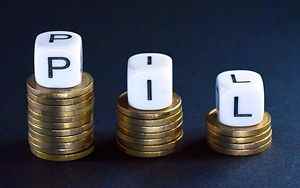(Finance) – The impact of shock on energy prices will lead to a downward effect on the level of Italian GDP in 2022 of 0.7 percentage points, compared to a base scenario with the prices of energy goods at the levels of the beginning of the year. This was stated by Istat in the monthly note on the Italian economy, highlighting that the estimate of the impact of the geopolitical crisis on the Italian economy “is extremely difficult” and that the evolution of the conflict and the effects of the financial and economic sanctions decided by Western countries “are characterized by high uncertainty“.
The National Statistical Institute explains that, in Italy, the deceleration of the economic recovery in the fourth quarter of 2021 was followed, in January, by the fall of industrial production and from one decline in retail sales. The evolution of the labor market was associated with that of productive activity with a slowdown between October and December in the growth of work units and hours worked and, in January, a stabilization of the employment rate.
In February, the harmonized index of consumer prices HICP recorded a further significant trend increase, reaching 6.2%, four tenths of a point more than the euro area average. “The differential of the index net of energy goods, however, remains in Italy’s favor”, is emphasized.
Istat highlights that the prospects for the Italian economy have changed rapidly, as they showed a favorable picture at the beginning of the year. In February, consumer confidence, at historically high levels, had marked moderate corrections, with the future climate component still rising sharply. In the same month, business confidence also grew after the sharp decline in January, particularly in construction and market services.
However, the strong geopolitical tensions have substantially changed the international situation and the possible evolution of the Italian economy. With the surge in energy prices, “economic activity would be adversely affected by the lower level of household consumption which would be accompanied by a reduction in the propensity to save. Compared to the base scenario, both employment and the balance of goods and services measured as a percentage of GDP would be lower “.
